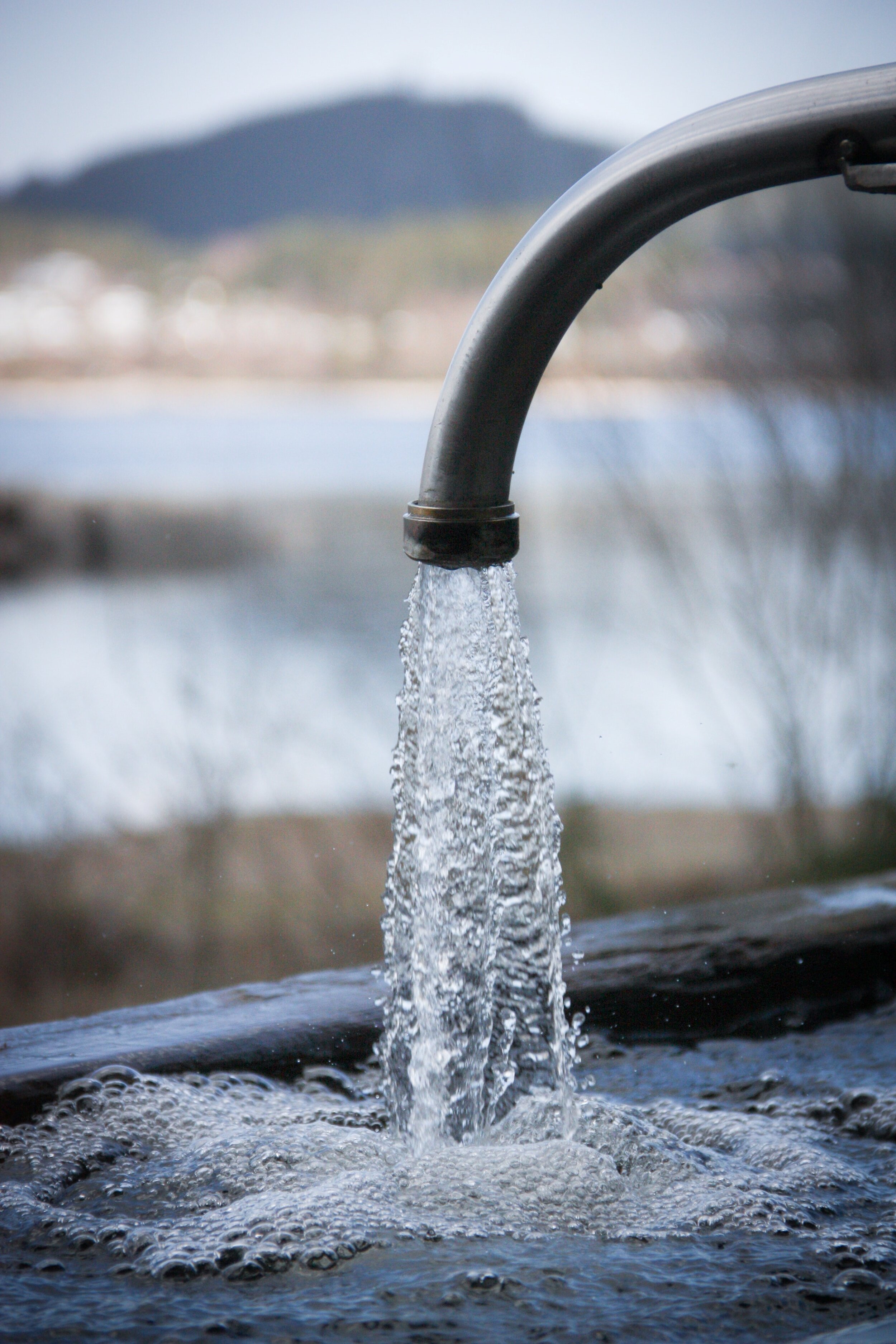After fifteen years leading the largest water provider in California, Jeff Kightlinger stepped down from his role as general manager at Metropolitan Water District (MWD). Over the course of his career, Kightlinger oversaw the water supply for 19 million Californians during unprecedented challenges to the state’s water security. His experience as general manager makes him a foremost expert on the many challenges currently threatening California’s water supplies—from crumbling infrastructure to a drying Colorado River. Before passing on the torch to his successor at Metropolitan, Kightlinger sat down with Western Water to provide some final thoughts about the future of California’s water.
In the years since Kightlinger first joined MWD district as a deputy general counsel in 1995, California’s waterscape has undergone rapid transformations. Global climate change and aging infrastructure threaten two of Southern California’s largest water sources: the Sierra Nevada Mountains and the Colorado River. With traditional water supplies drying up, water agencies are increasingly relying on conservation programs and local water projects to meet public demand.
Under Kightlinger, Metropolitan has pursued big projects to diversify their portfolio and secure water during years of drought. The agency utilized their formidable financial resources to fund immense projects like Diamond Valley Lake, the Inland Feeder pipeline, and the nation’s largest recycled water facility. “One thing I’ve been proud of during my tenure is that we tried to step into that gap that the state and federal government used to fill and tried to fill it for Southern California as best we can,” said Kightlinger in his interview with Western Water. “We’ve done big things […] and we continue to do big things.”
Metropolitan’s big projects have paid off, particularly for water recycling. Southern California recycled 2 percent of its water 25 years ago; now it leads the nation in water recycling. According to Kightlinger, MWD will continue to invest in local water projects like recycled water and desalination as a hedge against California’s drying climate. “Frankly, my 15 years as GM have basically been drought with a couple of wet years sprinkled in here. The reality of the West is that we are in a permanent drought cycle. We have to build into our thinking that this is not a dry period, this is our reality.”
Nowhere is the reality of prolonged drought more noticeable than at the Colorado River, which supplies roughly a third of Southern California's water. “The reality of the Colorado River is that we are struggling,” Kightlinger explained. “You start with the premise that it is over-allocated and oversubscribed. You have to make cutbacks just to get into balance. And our latest thinking seems to be that we’ve lost at least 10 percent of our supply due to climate change.” The Colorado River sunk to record lows this year, and a Tier 1 shortage, the first shortage ever declared for the river, seems all but guaranteed. Cutbacks could significantly impact Arizona and Nevada; states already struggling from the two-decade long drought plaguing the American Southwest. For Kightlinger, the roadmap to sustainability for the Colorado River will be shared cuts and cooperative programs between states and water agencies. “This is where the Southern Nevada Water Authority comes into mind where they can invest major money in Southern California for recycled water and we can exchange Colorado River water back to them. That is the kind of partnerships we’re going to have to do on the river for the future.”
A little bit closer to home, Kightlinger has been a vocal advocate for the Delta Conveyance Project. The San Joaquin-Sacramento Delta is a critical component of the State Water Project, which is a main supplier for Metropolitan. Water from the Sierra Mountains flows through the Delta into Southern California. But the aging infrastructure in the Delta is vulnerable to natural disasters and has long concerned MWD and other water agencies. The project remains locked in limbo due to fierce protests over costs and endangered fish populations. “The progress [on the Delta Conveyance Project] is very slow, there is no denying that, and it’s frustrating.” Kightlinger related. “[But] having the elected leadership of our state, for the last 15 years, basically say we need to address this problem, tells me that eventually we’re going to get it done.”
Despite the many challenges to California’s water security, Kightlinger remains optimistic about MWD’s ability to provide for their customers and forge new partnerships across county and state lines. “One of the things I have focused on is that while Met’s big and we can do big things,” said Kightlinger, “we have to have more partnerships.”
Kightliner’s expert understanding of California’s complicated water-world will be missed. His successor, Adel Hagekhalil, took the reigns as MWD’s 14th general manager last month. Hagekhalil, a civil and environmental engineer with extensive experience in water industry leadership, seems poised to continue Kightlinger’s legacy of cooperation. “As we move forward, I am determined to focus on what unites us and pursue a unified agenda that includes and works for every member agency,” said Hagekhalil in a Metropolitan press release. “Working together, I believe Metropolitan can continue confronting the challenges we face to ensure water reliability for all our member agencies and communities we serve.”
As an environmental testing laboratory serving a number of Metropolitan agencies, Babcock Labs looks forward to our continued partnerships to provide clean, safe water for Californians. Babcock Labs stays up-to-date on the latest in water regulations and water industry news; for more information about water-related events in California and the Inland Empire, please visit our website.

